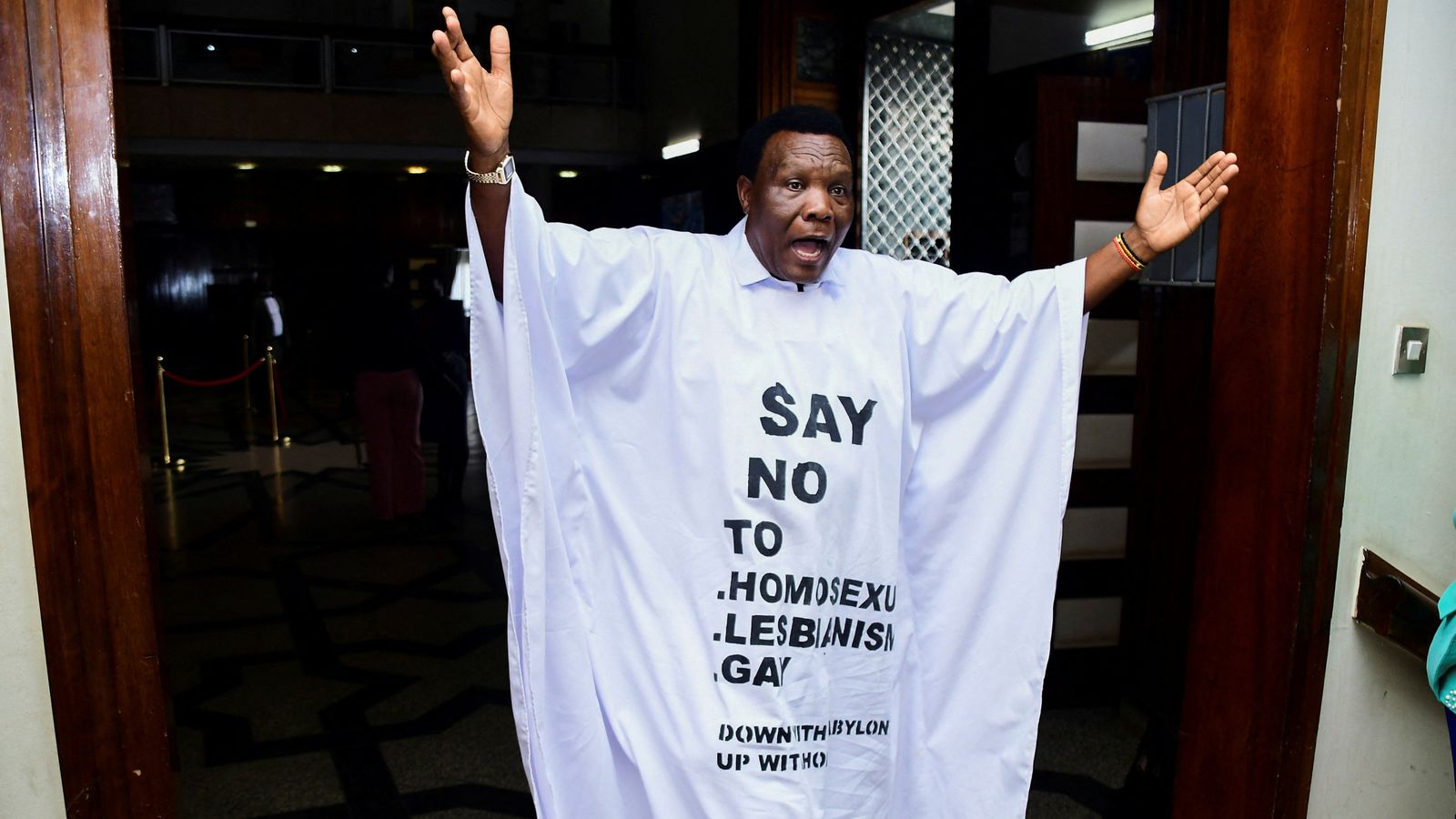Uganda passes bill making it a crime to identify as LGBT
Those found to have committed "aggravated homosexuality" could face the death penalty if Uganda's president signs the new bill into law.

Uganda's Parliament has passed a bill making it a crime to identify as LGBT - with the death penalty for "aggravated homosexuality".
More than 30 African countries, including Uganda, have already banned same-sex relations.
Supporters of the new law say a broader range of LGBT activities need to be punished, claiming they threaten traditional values.
Under the law, people will be banned from "promoting and abetting" homosexuality, as well as conspiracy to engage in same-sex relations.
Severe penalties will be in place, including death for so-called aggravated homosexuality and life in prison for gay sex.
Aggravated homosexuality involves gay sex with people under the age of 18 or when the perpetrator is HIV positive, among other categories, according to the law.
The bill was passed late on Tuesday inside a packed parliamentary chamber, and was supported by nearly all the 389 representatives in the Ugandan capital Kampala.
The legislation now will go to President Yoweri Museveni who can either veto the bill or sign it into law.
He recently suggested he was supportive of the move, accusing Western nations of "trying to impose their practices on other people".
The bill was introduced last month by an opposition politician who said his goal was to punish "promotion, recruitment and funding" of homosexuality.
During a debate on the bill, politician David Bahati said: "Our creator God is happy [about] what is happening... I support the bill to protect the future of our children.
"This is about the sovereignty of our nation, nobody should blackmail us, nobody should intimidate us."
But politician Fox Odoi said the bill was "ill-conceived" and unconstitutional because it "criminalises individuals instead of conduct".
An earlier version of the bill enacted in 2014 was later nullified by a court on procedural grounds.
Human Rights Watch described the legislation as "a more egregious version" of the 2014 law, which drew widespread international concern and was struck down amid pressure from Uganda's development partners.
If signed into law, the bill "would violate multiple fundamental rights, including rights to freedom of expression and association, privacy, equality, and non-discrimination", Human Rights Watch said.
"One of the most extreme features of this new bill is that it criminalises people simply for being who they are as well as further infringing on the rights to privacy, and freedoms of expression and association that are already compromised in Uganda," the group's spokesperson Oryem Nyeko said in a statement earlier this month.
"Ugandan politicians should focus on passing laws that protect vulnerable minorities and affirm fundamental rights and stop targeting LGBT people for political capital."


